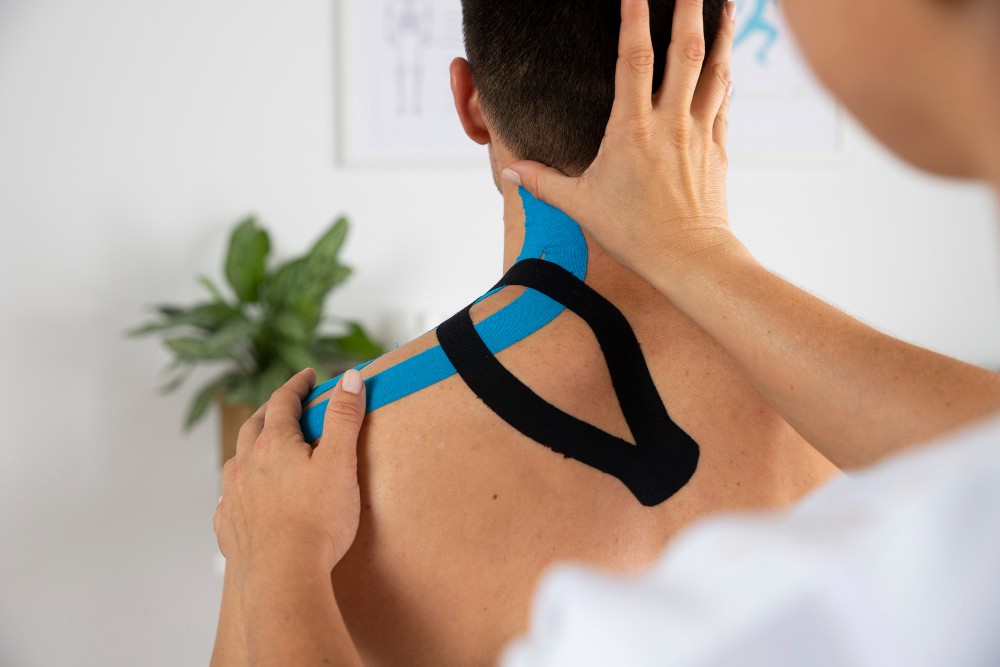Humans rely on their muscles for daily movement. However, muscles may not function under certain conditions, leading to muscle spasms. This issue can be a symptom of stiff-person syndrome, a rare autoimmune disease affecting nerves.
What is stiff-person syndrome?
Stiff-person syndrome is an autoimmune and neurological disorder in which muscles in the trunk and limbs stiffen and spasm. People with this condition initially experience muscle stiffness, which spreads to other body parts over time.
This disease is also known as Moersch-Woltman syndrome or stiff person syndrome. It leads to painful muscle spasms that can be triggered by noise, physical contact, or emotional stress.
Stiff-person syndrome is a very rare condition. According to the Cleveland Clinic, only 1 in 1 million people are diagnosed with this syndrome. This condition is more common in women than men. Symptoms can appear at any age, but they typically develop between the ages of 30 and 60.
Causes of stiff-person syndrome
According to Yale Medicine, the cause of this rare disease is still unknown. However, researchers believe it is an autoimmune reaction in which the body attacks nerve cells in the central nervous system that controls muscle movement.
Most people with stiff-person syndrome develop antibodies that target the enzyme glutamic acid decarboxylase (GAD). GAD makes a neurotransmitter called gamma-aminobutyric acid (GABA) that helps control muscle movement.
Experts believe that in people with stiff-person syndrome, the immune system mistakenly attacks the GAD enzyme, lowering the amount of GABA in the body. However, more research is needed because some people with the syndrome lack detectable GAD antibodies.
Symptoms of stiff-person syndrome
The main symptom of stiff-person syndrome is muscle stiffness in the torso and severe muscle spasms. This stiffness can be triggered by environmental stimuli, such as loud noises or emotional distress. If the muscle spasm is severe enough, it may cause the person to fall. Once the stimulus has passed, the muscles will gradually relax.
Symptoms of stiff-person syndrome can develop over months or years. Some patients remain stable for years, while others worsen. Muscle stiffness will initially come and go, but it will eventually become constant. Over time, more muscles, including those in the arms and face, become stiff.
In some people, muscle stiffness can cause a hunched posture. In severe cases, stiff muscles can make it difficult to walk or move.
People with stiff-person syndrome frequently exhibit symptoms of depression and anxiety, which are mostly triggered by the unknown progression of the disease. Additionally, people with stiff-person syndrome have lower levels of the neurotransmitter GABA, which is responsible for regulating anxiety.
Treatment of stiff-person syndrome
There is currently no specific treatment for stiff-person syndrome. Temporary treatment involves prescribing medication to manage symptoms. Doctors can prescribe sedatives, muscle relaxants, and steroid medications. In addition, patients will require various types of physiotherapy to maximize body movement.
Stiff-person syndrome is a rare disease that still requires further research. If you experience muscle spasms that worsen over time, you should see a doctor immediately.
If you need medical advice or consultation, you can either visit a doctor or make use of the consultation features that are available in the Ai Care application by downloading the Ai Care application from the App Store or Play Store.
Looking for more information about other diseases? Click here!
- Sean Edbert Lim, MBBS
Cleveland Clinic. Stiff Person Syndrome. Available from: https://www.yalemedicine.org/conditions/stiff-person-syndrome#
National Institute of Neurological Disorders and Stroke. Stiff-Person Syndrome. Available from: https://www.ninds.nih.gov/health-information/disorders/stiff-person-syndrome
Yale Medicine. Stiff-Person Syndrome. Available from: https://www.yalemedicine.org/conditions/stiff-person-syndrome#











